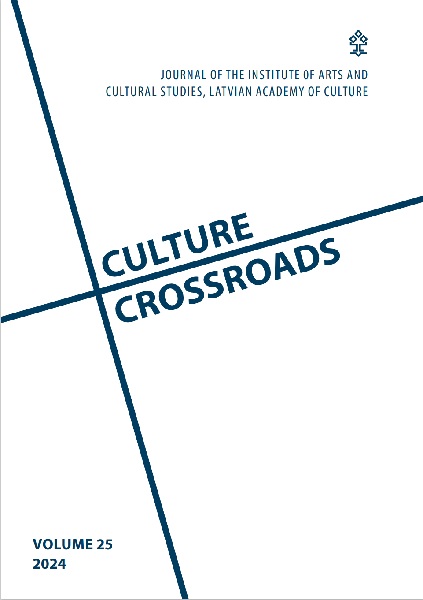PUBLIC LIBRARY IN TODAY’S WORLD – SOCIAL AND LEGAL ASPECTS
DOI:
https://doi.org/10.55877/cc.vol25.480Keywords:
library, cultural space, cultural heritage, civil rights, social rightsAbstract
Libraries have a long history. They existed ever since writing began. Historical transformation affected not only the contents of libraries, but also their form, mission, functions and services. With changing times and societies, evolving information and communication technologies, and contrary to predictions that libraries might lose their role and disappear altogether, they have changed along with the needs, demands and habits of society, learned to draw on new technologies, so forming a completely new understanding of libraries, their definition and role in today’s educational, cultural, political and social environment. Development of the library sector was affected also by global changes and crises, but libraries were able to respond to challenges and use them as an opportunity for development, positive changes and transformation. This was mainly thanks to a user-oriented approach pursued by libraries, putting people and their needs, demands and rights at the heart of library activities. This forms a new culture of libraries, taking the place of their old philosophy, which was collection-oriented. Libraries provide free access to information, knowledge, education, cultural heritage and cultural events, and play a key role in science, lifelong learning, developing digital skills, improving literacy and information literacy in society, strengthening democracy and ensuring civic participation, promoting the use of creative potential, and ensuring access to state and municipal services. Thus, the phenomenon of today’s library is associated with both accumulating and preserving cultural heritage and taking part in securing an individual’s social and civil rights.
The article analyses the phenomenon of the public library as a cultural establishment, its role in meeting the social needs of society, and problems of legislation in the sustainable development of library activities. The focus of the article is on public libraries, as their main task is to provide services to the entire society. The analysis of the legal framework was carried out in the context of Latvia, observing the international framework. This is necessary to understand how the legal framework can ensure the development of libraries. Following the mission of libraries to act for the public good and to put people and their needs at the heart of library activities, the legal framework for libraries should reflect and protect public interests and an individual’s right to information, freedom of expression and association, diversity of opinion and belief, artistic freedom, equal treatment, culture and education. A narrow understanding of library functions can restrict the right of access to information, education, culture and social services. The legislator should introduce library functions in the legal framework by including also a social aspect, clarifying and expanding information, educational and cultural functions.
Downloads
References
Council of Europe (1950). Convention for the Protection of Human Rights and Fundamental Freedoms. Available: https://likumi.lv/ta/en/starptautiskie-ligumi/id/649-convention-for-the-protection-of-human-rights-and-fundamental-freedoms (viewed 10.01.2024.)
Goulding, A. (2017). Public Libraries in the 21st century. London: Routledge, pp. 261–294.
IFLA-UNESCO Public Library Manifesto (2022). Available: https://repository.ifla.org/bitstream/123456789/2006/1/IFLAUNESCO%20Publc%20Library%20Manifesto%202022.pdf (viewed 14.01.2024.)
IFLA (2022a). Library Map of the World. Available: https://librarymap.ifla.org (viewed 12.01.2024.)
IFLA (2022b). Ziņojums par attīstības tendencēm. 2022. gada atjauninājums. Available: https://ej.uz/v64y (viewed 14.01.2024.)
IFLA public library service guidelines (2010). 2nd, completely rev. ed./edited by Christie Koontz and Barbara Gubbin. The Netherlands: IFLA, p. 120.
Lankes, D. R. (2019). Library as Movement. Available: https://davidlankes.org/library-as-movement/ (viewed 14.01.2024.)
Latvijas Bibliotēku padome (2023). Bibliotēku nozares stratēģija 2023–2027. Available: https://www.km.gov.lv/lv/media/32748/download?attachment (viewed 04.04.2024.)
Latvijas Nacionālā bibliotēka (2021). Pārskata ziņojums “Latvijas bibliotēkas 2021. gadā”. Available: https://ej.uz/e4in (viewed 16.01.2024.)
Latvijas Republikas Saeima (1998). Library Law. Available: https://likumi.lv/ta/en/en/id/48567-library-law (viewed 15.01.2024.)
Latvijas Republikas Saeima (1992). Law “On the National Library of Latvia”. Available: https://likumi.lv/ta/en/en/id/62905-on-the-national-library-of-latvia (viewed 05.04.2024.)
Latvijas Republikas Saeima (1922). The Constitution of the Republic of Latvia. Available: https://likumi.lv/ta/en/en/id/57980-the-constitution-of-the-republic-of-latvia (viewed 16.01.2024.)
Latvijas Republikas Satversmes tiesa (2020). 2020. gada 25. jūnija spriedums lietā Nr. 2019-24-03. Available: https://ej.uz/5eqh (viewed 16.01.2024.)
Macpane, L. (2024). April 8, 2024, oral interview with Inga Kudeikina.
Ministru kabinets (2001). Bibliotēku darbībai nepieciešamā finansējuma normatīvi. Available: https://likumi.lv/ta/id/54230-biblioteku-darbibai-nepieciesama-finansejuma-normativi (viewed 15.01.2024.)
Ministru kabinets (2001a). Bibliotēku materiālā un tehniskā pamata normatīvi. Available: https://likumi.lv/ta/id/53872-biblioteku-materiala-un-tehniska-pamata-normativi (viewed 16.01.2024.)
Ministru kabinets (2006). Bibliotēku akreditācijas noteikumi. Available: https://likumi.lv/doc.php?id=142695 (viewed 16.01.2024.)
Pettegree, A., der Weduwen, A. (2021). The Library: A Fragile History. London: Profile Books Ltd.
Sporāne, B. (2016) Bibliotēkas fenomena filozofiskā izpratne // LU raksti. Bibliotēkzinātne. Bibliotēka un sabiedrība. No. 699, pp. 191–192.
Downloads
Published
Issue
Section
License
Copyright (c) 2024 Culture Crossroads

This work is licensed under a Creative Commons Attribution 4.0 International License.


